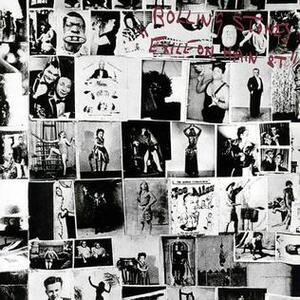
Rolling Stones – Exile on Main Street
When Messy Production Meets Muddled Genius
Look, I get it. “Exile on Main Street” is supposed to be the holy grail of rock and roll excess turned into artistic triumph. It’s the album where the Rolling Stones, holed up in a French mansion like debauched aristocrats avoiding the revolution, somehow stumbled into greatness. But after multiple listens, I’m left wondering if we’ve all been a bit too generous with our rose-tinted headphones.
Let’s start with what works, because there’s undeniably some magic here. “Tumbling Dice” is a perfect fusion of gospel, blues, and rock that feels like sin and salvation holding hands on their way to church. The way Jagger’s vocals weave through the guitar lines is like watching a master pickpocket work a crowded street – you know you’re being robbed, but you can’t help admiring the technique.
“Sweet Virginia” captures something so authentically American that it’s almost absurd coming from a bunch of British guys hiding from the tax man in France. It’s like they distilled every country-western bar in Texas into five minutes of acoustic glory. And “Happy,” with Keith Richards’ weathered vocals, is probably the most honest thing on the album – a simple rock song that knows exactly what it is.
But then there’s the problem of production, or should I say, the lack thereof. The album often sounds like it was recorded underwater while the mixing board was having an existential crisis. Some call it atmosphere; I call it audio mud. Sure, “Let It Loose” is a great song… if you can hear it through what sounds like several layers of vintage denim.
The bloat is real. At 18 tracks, “Exile” feels like someone couldn’t make the tough decisions in the editing room. For every “Rocks Off” that kicks like moonshine, there’s a “Turd on the Run” that, well, lives up to its name. “Casino Boogie” feels less like a finished song and more like a jam session that accidentally got pressed onto vinyl.
What’s frustrating is how the album’s flaws and virtues are often the same thing. The loose, sloppy production that makes “All Down the Line” feel alive and dangerous makes “I Just Want to See His Face” sound like it was recorded in a haunted shower stall. The raw, unfinished quality that gives “Ventilator Blues” its edge makes other tracks feel half-baked.
The album’s influences are worn so openly they’re practically indecent – blues, gospel, country, soul – but they’re filtered through such a uniquely dissipated lens that they become something new, if not necessarily improved. It’s like watching someone make gumbo while drunk: the ingredients are right, but the proportions are questionable.
Here’s the thing: the album’s mythology has become inseparable from its music. The tax exile, the heroin, the basement studio, Keith Richards’ pharmaceutical adventures – it’s all become part of how we hear these songs. Strip away the legend, and you’re left with an album that’s brilliant about 60% of the time, interesting 20% of the time, and a muddy mess the rest.
Rating: 6.5/10 – Like a party that peaks too early but refuses to end
Highlights: “Tumbling Dice,” “Sweet Virginia,” “Happy,” “Rocks Off”
Lowlights: “Turd on the Run,” “I Just Want to See His Face,” “Casino Boogie”
Side Note: If this album were a person, it would be that friend who shows up to your house party already wasted, breaks some furniture, tells three brilliant jokes, passes out on your couch, and somehow makes you feel like you had a philosophical breakthrough in the process.
Worth Noting: My opinion here puts me at odds with many rock critics who consider this album the Stones’ masterpiece. Maybe they’re right. Maybe the chaos is the point. Or maybe we’ve all agreed to pretend that confusion is complexity and mistakes are innovation. Either way, “Exile” remains a fascinating mess of an album that you should probably hear at least once, if only to join the debate.